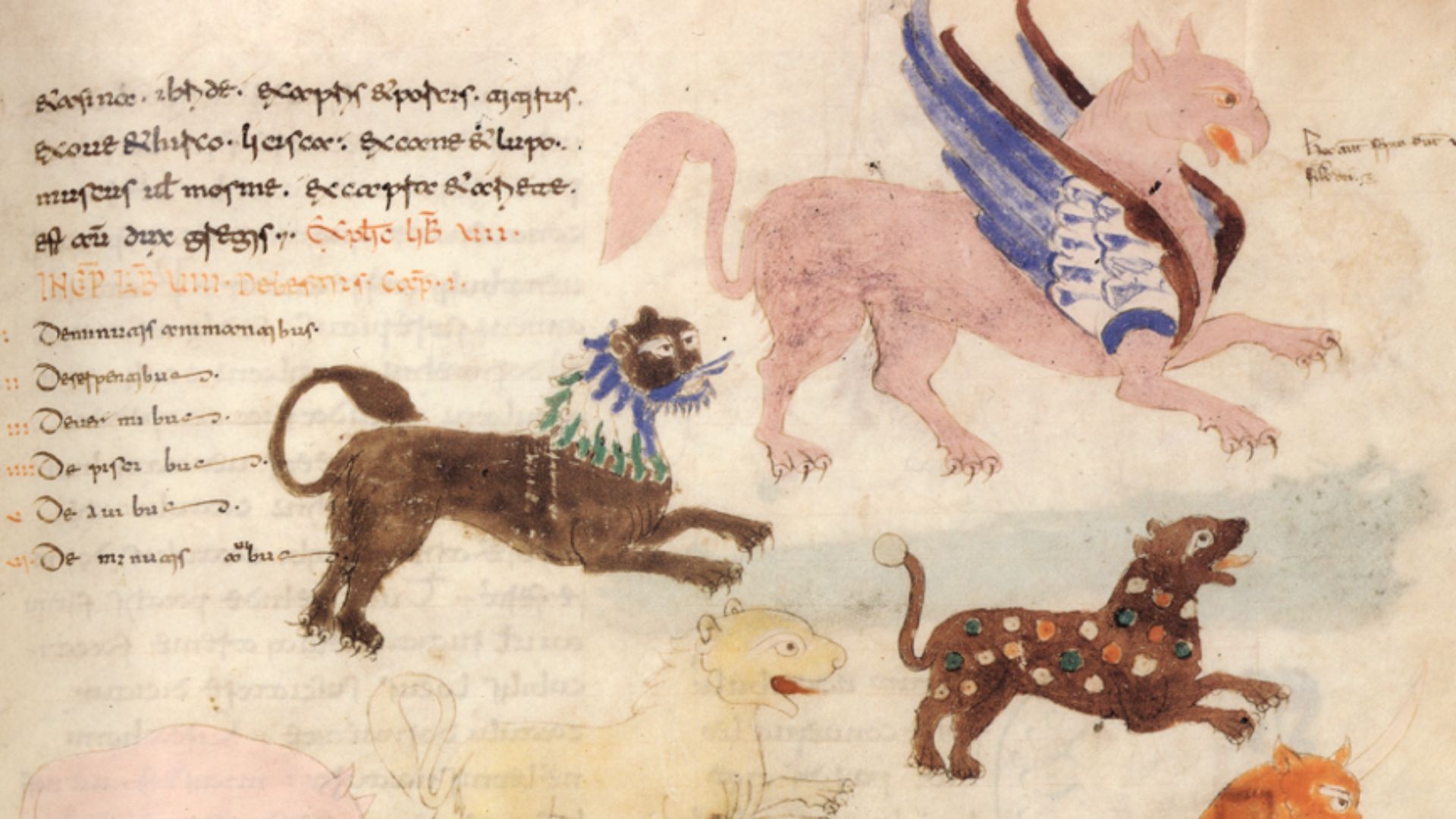Conversation: Approaches to Medieval Environments

Manuscript of Hrabanus Maurus, De Rerum Naturis, Archivio dell'Abbazia di Montecassino, Cod. Casin. 132, f. 234 (God creating Adam). Date, second quarter of the 11th century.
Research on past environments sheds new light on material realities of the past, as well as the structures of thinking and knowing which people used to understand the world around them. Religion and science provided the frameworks for understanding nature and its relationship with men. In periods of significant social change, like the Middle Ages, people of the past retooled their understanding of how the world around them worked. Did monotheistic religion prompt a different understanding of the natural world after the Roman empire? How consistent were the patterns for understanding nature and the environment across the territories of the Mediterranean and European worlds? What bodies of knowledge were deployed to explain and understand nature?
This evening’s event features two short papers by scholars working at the cutting edge of studies in environments of the Middle Ages in Europe and Western Eurasia. After the papers, Caroline Goodson will moderate a conversation addressing new questions around the medieval environments.
Michele Campopiano: "Dominion, Environment, and the Idea of Nature in the High and Late Middle Ages: Political and Ideological Implications"
Helen Foxhall Forbes: “Human-environment Relationships in their Early Medieval Italian Intellectual and Social Contexts"
Speakers bios:
Michele Campopiano is Professor of Medieval History. He studied at the Scuola Normale Superiore and the University of Pisa. Between 2014 and 2024, he was Associate Professor at the University of York, United Kingdom. He was awarded a Fellowship from the Alexander von Humboldt Foundation for senior researchers for the project Stadt und Fluss im Mittelalter: Wasserbau in Rhein- und Pogebiet im Vergleich (ca. 1300–1550). Campopiano is also the author of a study on environmental history and the relationship between society, culture, and nature in the Middle Ages, Storia dell’ambiente nel Medioevo. Natura, società, cultura (Carocci), and co-editor of the volume Conflicts over Water Management and Water Rights from the End of Antiquity to Industrialisation (Franz Steiner Verlag).
Helen Foxhall Forbes is Professor of Medieval History at Ca' Foscari University, Venice, and the PI of Science, Society and Environmental Change in the First Millennium CE (ERC Consolidator Grant 101044437). She is a member of NICHE. Her research focuses on Europe and the Mediterranean in late antiquity and the early Middle Ages, centering on issues relating to intellectual culture, social history, and human-environment relationships. She is currently completing a translation of the Dialogues of Gregory the Great for Liverpool University Press's Translated Texts for Historians series, and she is one of the editors of Cambridge Elements in the Late Antique World.
I visitatori dell’American Academy in Rome sono pregati di mostrare un documento d’identità all’ingresso. Non è possibile accedere con bagagli o zaini di dimensioni superiori a cm 40 x 35 x 15. Non sono disponibili armadietti né guardaroba. Non è permesso portare animali (ad eccezione dei cani guida).
L’Accademia è accessibile agli utenti in sedia a rotelle e a coloro che devono evitare le scale. Si prega di inviare una email all’indirizzo tours@aarome.org se voi o qualcuno del vostro gruppo utilizza una sedia a rotelle o altri dispositivi di mobilità, così da poter garantire la migliore facilità di accesso ai visitatori. Se siete persone con disabilità o condizioni mediche che potrebbero richiedere particolari accorgimenti, vi preghiamo di inviarci un’email all’indirizzo tours@aarome.org.